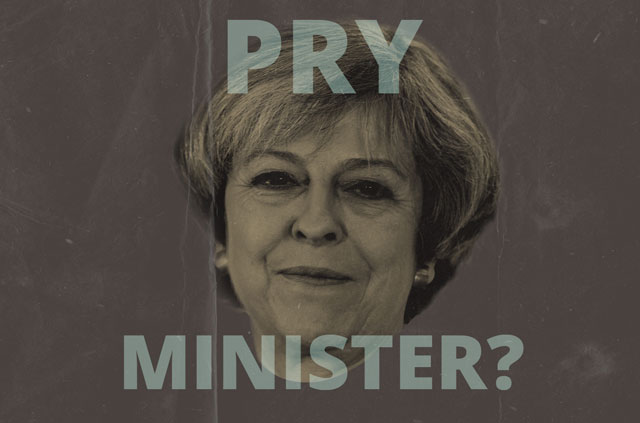You may know that Theresa May wants to be UK Prime Minister, but you may not know that she intends to take away your right to online privacy.
Theresa May’s privacy crackdown
Theresa May’s Digital Charter is part of the new Conservative manifesto and proposes new regulations that include governing the internet, controlled publishing, and open communication channels direct to the government.
More specifically, Theresa May’s proposals will force mobile communications companies and internet service providers (ISPs) to provide her government with real-time information on how, what, and where you are communicating.
Theresa May’s insistence on backdoor action
Even more concerning is May’s insistence that ISPs and internet companies give the government encrypted information and a ‘backdoor’ into encryption practices, an essential security method that converts information into code that cannot be understood by anyone except authorized parties.
Backdoors weaken internet security controls and put your computer system at risk. Backdoors most famously allowed hackers the opportunity to launch the recent WannaCry ransomware attack that infected more than 230,000 computers in 150 countries and crippled the UK’s National Health Service.
Eroding your privacy and internet freedom
As if the security threats from Theresa May’s plans weren’t bad enough, they also mean that your communications and data will become the property of the UK government, without them asking your permission.
Theresa May’s regulatory noose is tightening on anyone who values their online privacy and marks a new extreme in government surveillance and tracking. The new Digital Charter could even surpass the November 2016 passing of the UK’s Investigatory Powers Act, which Edward Snowden labelled “the most extreme surveillance in the history of western democracy”.
States are sponsoring and encouraging an assault on your freedom
In April 2017, Donald Trump let ISPs retain the right to collect your information without your permission—and use it however they choose. Trump’s decision declared an open season on your personal life, and now ISPs don’t even have to tell you if they lose your data, or if they sell it.
The Australian government is also getting in on the act, introducing new legislation in April 2017 forcing ISPs and telecoms companies to collect and retain all metadata on their customers for commercial use and for unlimited access by any government department that requires it.
Can you trust governments to protect your data?
Of even greater concern is the responsibility that governments bear to keep your data safe and countless examples show they’re not up to the job.
Between 2011 and 2015, the UK government lost more than 500,000 pieces of sensitive patient health records—a disaster for the state but a bonanza for the many healthcare companies who were all keen to get their hands on data so they could market themselves to sick people.
And looking further afield, the US government’s Office of Personnel Management lost the data records of 21.5 million individuals in a July 2015 data breach, with information including addresses, social security numbers, dates of birth, income levels and work details all being accessed by information hackers.
If this wasn’t bad enough, some 154 million US citizens had their data exposed after L2, a marketing and data management company, put an entire database of US voter information on Google Cloud, with no password or authentication required.
While governments such as Theresa May’s are working harder than ever to collect every personal detail they can find, they’re obviously not up to the job of keeping you safe by taking security seriously.
Take control of your privacy with a VPN
So it’s up to you to take responsibility into your hands, and using a virtual private network (VPN) allows you to do just that.
VPNs stop anyone from analyzing your browsing data by encrypting your web traffic, meaning ISPs can’t process, package and send your details to the government.
When you choose a VPN, take the time to look online to find one that suits you. You should make your choice according to customer service grades, download speeds, and the legal jurisdiction of the VPN company itself.
It’s worth noting that a good VPN will probably require a fee. Paying for your service gives you the peace of mind that your provider is investing in the quality of the service and not—like some recently exposed services—keeping their business going and compromising your security by selling your data.


Terrific article! This is the type of information that are meant
to be shared across the web.